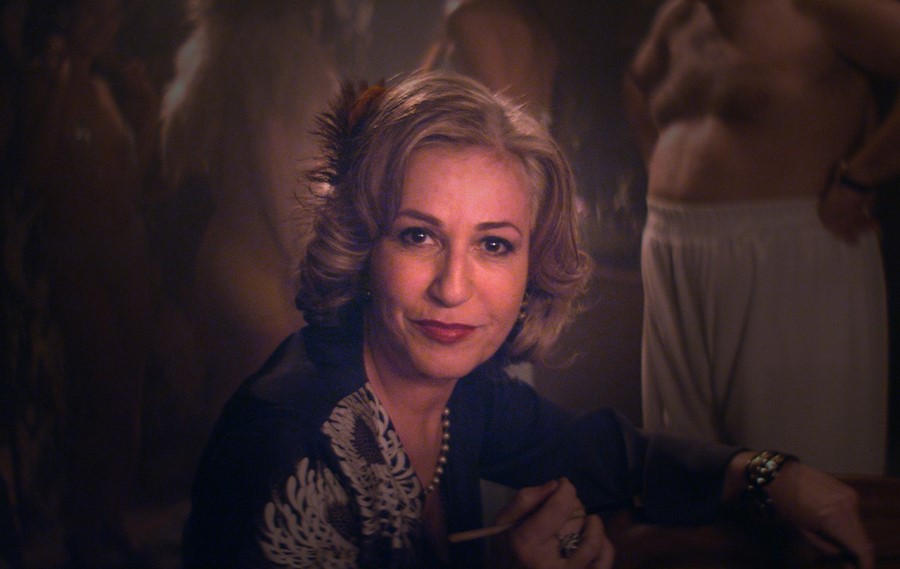Acclaimed Chilean director Pablo Larraín discusses the magical realisation of Neruda, his new “anti-biopic” of the celebrated communist wordsmith
Chilean filmmaker Pablo Larraín does not like biopics. “They’re boring,” he tells AnOther candidly during a press trip to London last year, where he is promoting not one, but two forthcoming biopics: Jackie, starring Natalie Portman as the ill-fated Jackie Kennedy, and Neruda, about the renowned Chilean poet and senator Pablo Neruda, which arrives in UK cinemas today. But Larraín’s biopics are different, they don’t fall prey to the formulaic structure that has given the genre a bad name in recent years. First off, rather than presenting us with a whistlestop tour of the key events in the lives of his subjects, the director hones in on one brief period, exploring it in depth – in the case of Jackie, it is the days that followed Kennedy’s assassination, while in Neruda, it is the time the esteemed communist was forced to flee Chile in 1948, when his party was banned by President González Videla and a warrant issued for his arrest. Equally, Larraín is not afraid to veer freely from fact to fiction to better explore his enigmatic characters – particularly in the case of Neruda, which is the film we’re here to talk about.
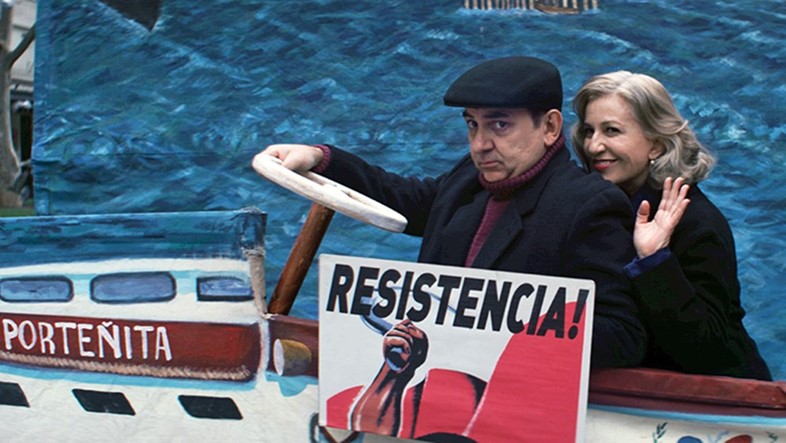
“It was my brother’s idea to make a film about this specific period of Neruda’s life,” the 40-year-old director explains. “At first I was daunted by the idea. We have lots of great historians, writers and journalists who have written about our past, but if you really want to know and understand who we Chileans are, then you have to go and read our poets – and Neruda is one of them. He is part of Chile’s DNA.” In the film, Neruda is played by a rotund, affably pompous Luis Gnecco, who begrudgingly had to gain all the pounds he had recently shed before filming commenced. Through Larraín’s lens, the poet is revealed as a champagne communist, who hosts hedonistic parties in his beautiful house, filled with “precious objects”. He goes to brothels to engage in bacchanalian frolics, and revels in his own importance: “I’m not going to hide under a bed,” he declares after being informed of his ‘wanted’ status, “this has to become a wild hunt.”
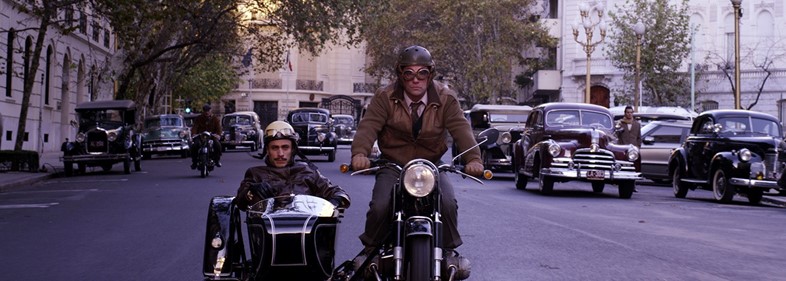
But, as we soon discover, Neruda the man and Neruda the poet are two different entities – a point highlighted by the lilting tone the icon reserves solely for reciting his work. Neruda’s poetry speaks to the hearts and souls of the Chilean people, not just his fellow bourgeoisie who listen to him enraptured, but the 10,000 workers who, we are told, “would go silent to hear him read”. “He was able to create a collective dream, a collective sensation,” says Larraín passionately, “to gather a whole society through his words, which were often trying to protect the working class. By doing this he became a hero and someone who penetrated multiple layers of our society.”
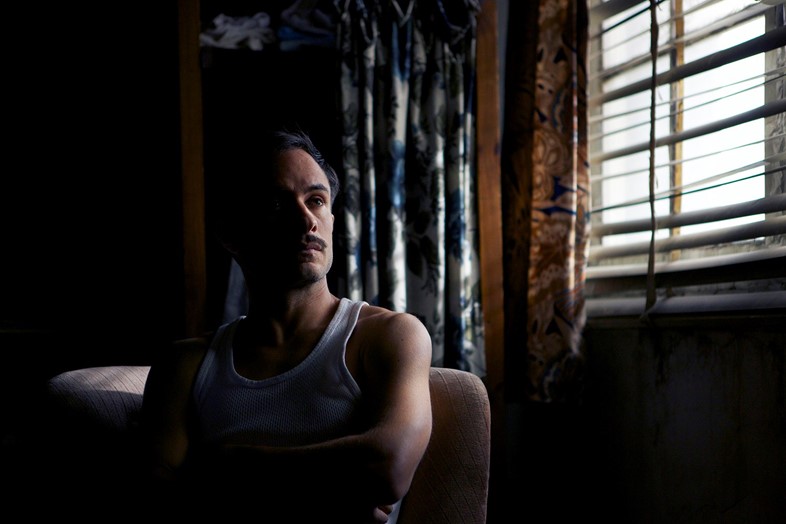
So how did Larraín overcome his anxieties surrounding the portrayal of such a mythicised figure from Chile’s past? “We actually began working with [writer] Guillermo Calderón on a more conventionally biographic script some years ago,” he says, “but it eventually developed and became this anti-biopic, which is not so much about Neruda, but about his cosmos.” The catalyst for this new approach was the decision to introduce an entirely fictional character as the film’s principal protagonist: the wonderfully self-aggrandising police inspector, Oscar Peluchonneau, who is drafted in to conduct the manhunt. “Oscar opened the doors for a fiction within a fiction, for being able to look at Neruda in a very particular way; to capture the world he created,” the director says of the moustachioed, fedora-sporting detective – masterfully embodied by Gael García Bernal – who traces Neruda from secret location to secret location, always arriving just as the poet has departed. This cat-and-mouse format also allowed Larraín to make what he describes as “a movie about movies”. “We could include lots of different elements,” he says, “from the noir cinema of the 40s and 50s to black comedy to road movies and westerns.”
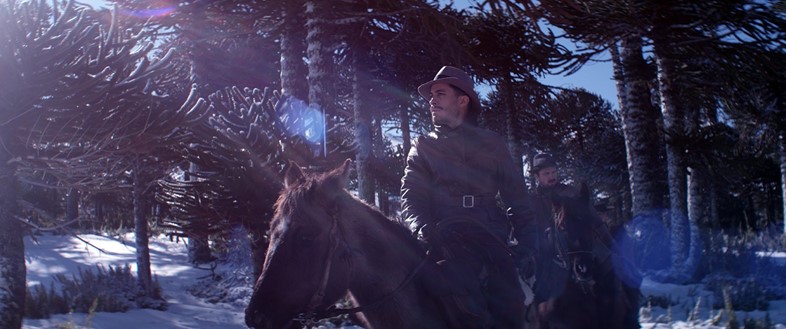
All of these cinematic flourishes make for incredibly stylish viewing – enhanced by exquisite cinematography, courtesy of Larraín’s favoured DOP Sergio Armstrong, beautiful set design and a sumptuous, sun-infused colour palette – but that is not to say they detract from the evocation of Neruda himself, in fact quite the opposite. “Neruda’s poetry is at the heart of the film. He had a very specific rhythm of writing and a very specific energy. We read his poetry, absorbed it, and sweat this film somehow,” Larraín explains with a mysterious smile. “It’s hard to put it into words, because it’s like talking about music, but the film took on this energy as we went. We were never in the same place; the camera is always moving behind the characters, always trying to find things out. You have sensations, specific feelings and emotions, and you go out to harvest them and somehow the movie comes out alive.” There’s no doubt that Larraín, one of Chile’s most accomplished directors, is down playing his own role in this magical process, but it’s true: the film sweeps you up like a leaf in the breeze, transporting you from scene to scene with jazz-like abandon, and, cheesy as it may sound, you really do leave the cinema with a sense of having witnessed poetry in motion.
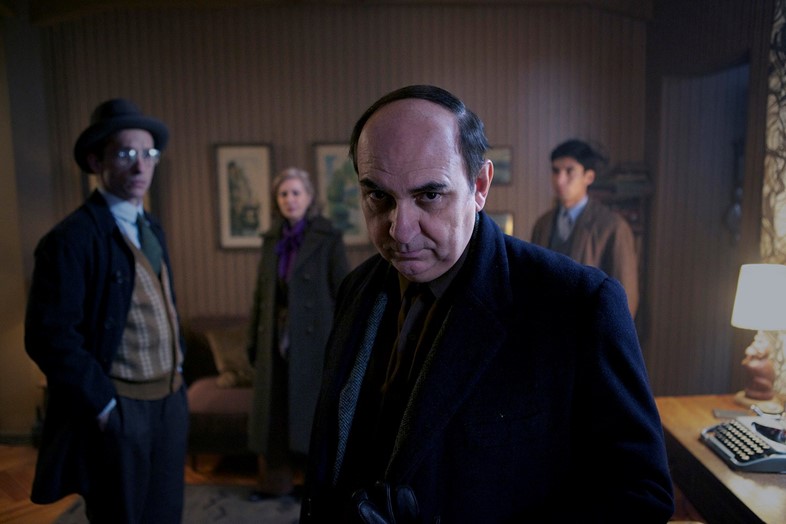
Neruda is in cinemas nationwide from April 7, 2017.
